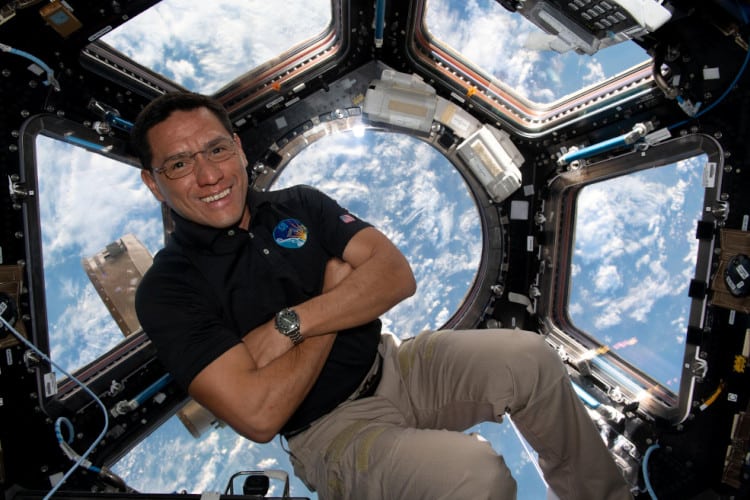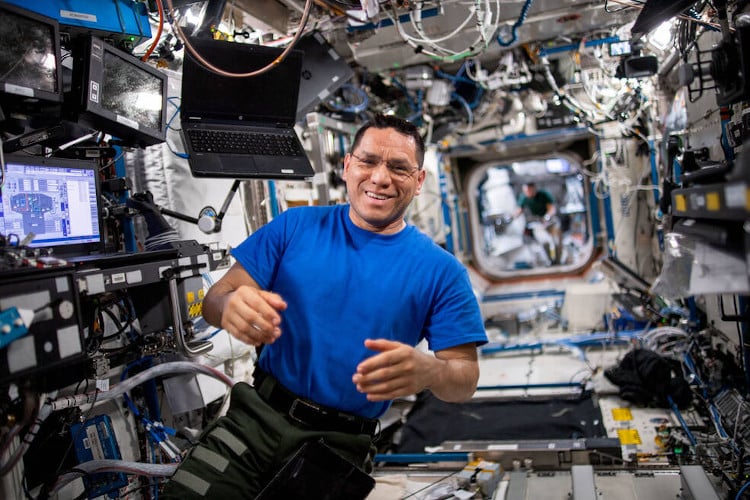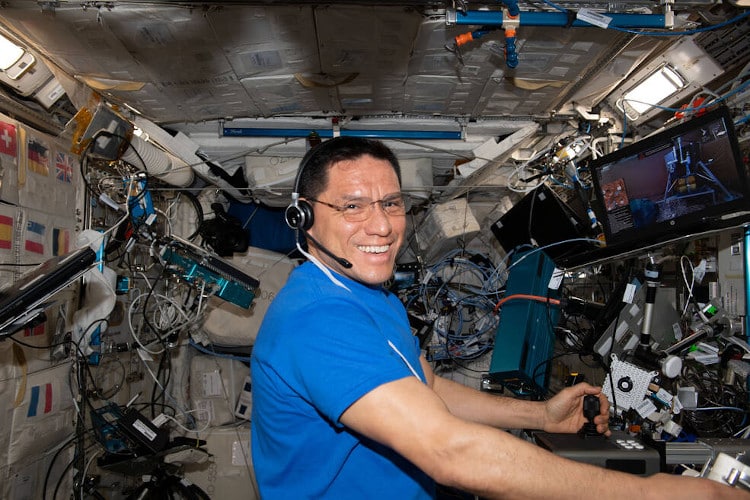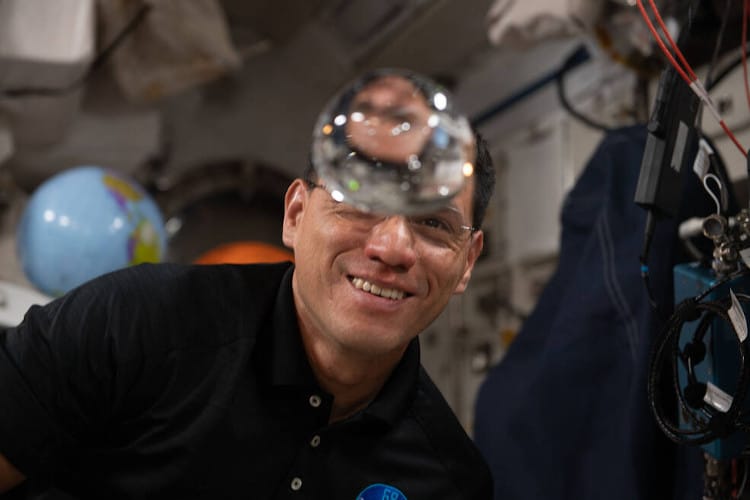
Photo: NASA
Astronaut Frank Rubio has made history. Not only is he the first American astronaut to have spent a whole consecutive year in space, but he now holds the U.S. record for the longest time in space. Rubio will have spent 371 days in low Earth when he finally comes home on September 27.
But having Rubio hold the record for the longest single spaceflight wasn’t in the cards originally. After his arrival to the International Space Station on September 21, 2022 aboard the Soyuz MS-22, his scheduled return was planned for March of this year. However, he became stranded with cosmonauts Sergey Prokopyev and Dmitry Petelin after their Soyuz capsule was hit by a micrometeorite, leading to a coolant leak. While an empty capsule was sent to space, the three astronauts had to take over the duties of those who would have traveled on it, delaying their return.
During his time at the ISS, Rubio has helped conduct multiple experiments, including a series of studies aimed towards unraveling how spaceflight affects human physiology and psychology. “Every day we spend up here, we know a little more about how the human body fares in space,” Rubio said. “We continue to do studies on the station that will help us when we continue exploring deeper and deeper into our solar system.”
For all the work he got to do and things he got to see aboard the ISS–from spacewalks to microgravity tests–the astronaut recently spoke frankly about being in space for over a year. “If they had asked me upfront before training, because you do train for a year or two years for your mission, I probably would have declined,” Rubio said during a live press conference from the ISS. “It would have hurt, but I would have declined.”
When asked about the first thing he’ll do when he gets back home, he said, “Hugging my wife and kids is going to be paramount and I’ll probably focus on that for the first couple of days,” adding that he’ll also revel in the silence of his backyard. “Up here, we kind of have the constant hum of machinery, that’s keeping us alive it’s very important but it is just a constant hum… so I’m looking forward to just being outside and enjoying the peace and quiet.”
Though Rubio is looking forward to landing back on Earth, his devoted work aboard the ISS will undeniably bring a lot of insight towards future missions. “Our understanding of how spaceflight affects the human body is mostly limited to astronauts on short-duration missions during the shuttle days and crew members on six-month missions aboard the space station,” says Steven H. Platts, chief scientist of NASA’s Human Research Program. “Rubio’s contributions provide valuable information that will be used to help keep astronauts as healthy as possible on increasingly longer missions to the Moon, Mars, and beyond.”
You can follow Rubio’s return to Earth on September 27 on NASA’s website. After closing the hatch and undocking, the Soyuz MS-23 spacecraft is expected to land in Kazakhstan around 7:17 a.m. EST, after which Rubio will be flown to Houston for his triumphant return to his hometown of Miami, Florida.
Astronaut Frank Rubio now holds the U.S. record for the longest time in space. He will have spent 371 days in low Earth when he finally comes home on September 27.

Photo: NASA
During his time at the ISS, Rubio has helped conduct multiple experiments, including a series of studies aimed towards unraveling how spaceflight affects human physiology and psychology.

Photo: NASA
You can follow Rubio’s return to Earth on September 27 on NASA’s website.

Photo: NASA
Frank Rubio: Instagram
h/t: [IFL Science]
All images via NASA
Related Articles:
Astrophotographer Captures Astronauts on a Spacewalk While the ISS Crosses the Sun
NASA Reveals Astronauts Who Will Fly to the Moon Next Year
Watch an Astronaut Get “Stuck” in Microgravity, Left Floating in Space
This NASA Astronaut Will Become the First Native American Woman in Space
